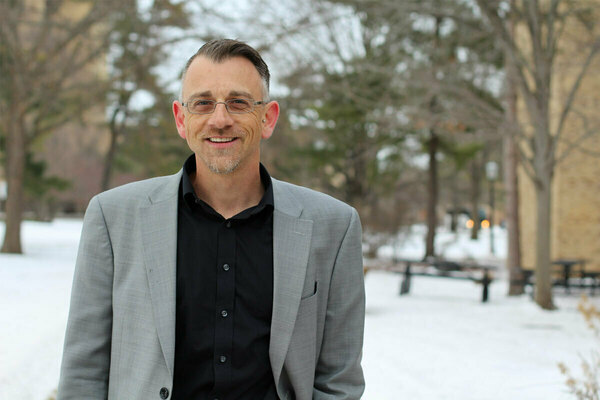

Jason Rohr, Galla Professor and Chair of the Department of Biological Sciences at the University of Notre Dame, has been named a finalist in MIT’s Solve Challenge in the Health Security & Pandemics Challenge category.
Rohr’s project—Disease, Food, Energy, & Water Solutions (DFEWS)—reduces schistosomiasis, the second most socioeconomically burdensome neglected tropical disease worldwide. DFEWS removes aquatic vegetation and converts it to compost, livestock feed, and cooking gas to increase food and energy. This single intervention has enormous potential to simultaneously and sustainably address food, water, and energy shortages, as well as a rampant infectious disease.
The finals will be live streamed on September 17, when viewers can tune in to see if Rohr, who is affiliated with Notre Dame Environmental Change Initiative and the Eck Institute for Global Health, and his collaborators are selected as a Solver team.
Schistosomiasis is a disease originating in tiny snails that feed on aquatic plants and release parasitic flatworms into the water. The disease reinforces poverty, devastates children, and defies control efforts because drug-treated humans quickly get re-infected when they return to snail-infested bodies of water. In addition, food, water, and energy shortages and infectious diseases torment marginalized populations in Africa, where more than 225 million people are undernourished and suffering through an energy and water crisis.
Rohr’s research demonstrates that removing aquatic vegetation from water access points increases open water access needed by villagers, which reduces schistosomiasis by removing the snail habitat and the snails that cause the disease. The vegetation is then converted to compost or livestock feed, significantly increasing food production. The vegetation can also be used as fuel in biodigesters, which create both fertilizer and cooking gas.
Rohr’s team uses satellite imagery to map locations of this vegetation and machine learning to geographically target this intervention. There is potential to mechanize vegetation removal and scale throughout Africa, Southeast Asia, Latin America, and the Caribbean.
Vote for Rohr’s project in the Solve Community Awards, which is independent of the judges’ selection of Solver teams. Anyone, anywhere can log in to vote for Rohr's project and provide feedback. The voting period is available through 12 pm ET September 17, 2021. The finalist with the most votes from each Challenge will receive a $2,000 Community Award after Virtual Solve Challenge Finals.
Solve, an initiative of the Massachusetts Institute of Technology (MIT) with a mission to solve world challenges, connects researchers with influential members of industry to create a marketplace for social impact innovation. Its current advisors include Laurene Powell Jobs, Colin M. Angle, Megan Smith and Ursula M. Burns.
Originally published by at science.nd.edu on August 20, 2021.